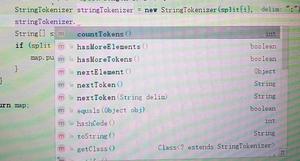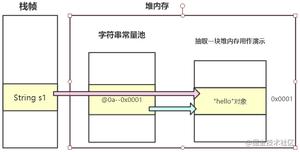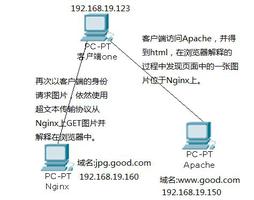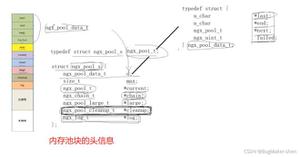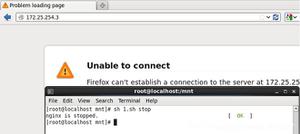Java压缩字符串的方法收集

说明:
1、一般来说要实现压缩,那么返回方式一般是用byte[]数组。
2、研究发现byte[]数组在转成可读的String时,大小会还原回原来的。
3、如果采用压缩之后不可读的String时,互相转换大小会变小,唯一缺点就是转出的String不可读,需要再次解码之后才可读。
4、对于压缩一般最近常听的应该就是gzip这些。
实现一:
/**** 压缩GZip
*
* @param data
* @return
*/
public static byte[] gZip(byte[] data) {
byte[] b = null;
try {
ByteArrayOutputStream bos = new ByteArrayOutputStream();
GZIPOutputStream gzip = new GZIPOutputStream(bos);
gzip.write(data);
gzip.finish();
gzip.close();
b = bos.toByteArray();
bos.close();
} catch (Exception ex) {
ex.printStackTrace();
}
return b;
}
/***
* 解压GZip
*
* @param data
* @return
*/
public static byte[] unGZip(byte[] data) {
byte[] b = null;
try {
ByteArrayInputStream bis = new ByteArrayInputStream(data);
GZIPInputStream gzip = new GZIPInputStream(bis);
byte[] buf = new byte[1024];
int num = -1;
ByteArrayOutputStream baos = new ByteArrayOutputStream();
while ((num = gzip.read(buf, 0, buf.length)) != -1) {
baos.write(buf, 0, num);
}
b = baos.toByteArray();
baos.flush();
baos.close();
gzip.close();
bis.close();
} catch (Exception ex) {
ex.printStackTrace();
}
return b;
}
/***
* 压缩Zip
*
* @param data
* @return
*/
public static byte[] zip(byte[] data) {
byte[] b = null;
try {
ByteArrayOutputStream bos = new ByteArrayOutputStream();
ZipOutputStream zip = new ZipOutputStream(bos);
ZipEntry entry = new ZipEntry("zip");
entry.setSize(data.length);
zip.putNextEntry(entry);
zip.write(data);
zip.closeEntry();
zip.close();
b = bos.toByteArray();
bos.close();
} catch (Exception ex) {
ex.printStackTrace();
}
return b;
}
/***
* 解压Zip
*
* @param data
* @return
*/
public static byte[] unZip(byte[] data) {
byte[] b = null;
try {
ByteArrayInputStream bis = new ByteArrayInputStream(data);
ZipInputStream zip = new ZipInputStream(bis);
while (zip.getNextEntry() != null) {
byte[] buf = new byte[1024];
int num = -1;
ByteArrayOutputStream baos = new ByteArrayOutputStream();
while ((num = zip.read(buf, 0, buf.length)) != -1) {
baos.write(buf, 0, num);
}
b = baos.toByteArray();
baos.flush();
baos.close();
}
zip.close();
bis.close();
} catch (Exception ex) {
ex.printStackTrace();
}
return b;
}
/***
* 压缩BZip2
*
* @param data
* @return
*/
public static byte[] bZip2(byte[] data) {
byte[] b = null;
try {
ByteArrayOutputStream bos = new ByteArrayOutputStream();
CBZip2OutputStream bzip2 = new CBZip2OutputStream(bos);
bzip2.write(data);
bzip2.flush();
bzip2.close();
b = bos.toByteArray();
bos.close();
} catch (Exception ex) {
ex.printStackTrace();
}
return b;
}
/***
* 解压BZip2
*
* @param data
* @return
*/
public static byte[] unBZip2(byte[] data) {
byte[] b = null;
try {
ByteArrayInputStream bis = new ByteArrayInputStream(data);
CBZip2InputStream bzip2 = new CBZip2InputStream(bis);
byte[] buf = new byte[1024];
int num = -1;
ByteArrayOutputStream baos = new ByteArrayOutputStream();
while ((num = bzip2.read(buf, 0, buf.length)) != -1) {
baos.write(buf, 0, num);
}
b = baos.toByteArray();
baos.flush();
baos.close();
bzip2.close();
bis.close();
} catch (Exception ex) {
ex.printStackTrace();
}
return b;
}
/**
* 把字节数组转换成16进制字符串
*
* @param bArray
* @return
*/
public static String bytesToHexString(byte[] bArray) {
StringBuffer sb = new StringBuffer(bArray.length);
String sTemp;
for (int i = 0; i < bArray.length; i++) {
sTemp = Integer.toHexString(0xFF & bArray[i]);
if (sTemp.length() < 2)
sb.append(0);
sb.append(sTemp.toUpperCase());
}
return sb.toString();
}
/**
*jzlib 压缩数据
*
* @param object
* @return
* @throws IOException
*/
public static byte[] jzlib(byte[] object) {
byte[] data = null;
try {
ByteArrayOutputStream out = new ByteArrayOutputStream();
ZOutputStream zOut = new ZOutputStream(out,
JZlib.Z_DEFAULT_COMPRESSION);
DataOutputStream objOut = new DataOutputStream(zOut);
objOut.write(object);
objOut.flush();
zOut.close();
data = out.toByteArray();
out.close();
} catch (IOException e) {
e.printStackTrace();
}
return data;
}
/**
*jzLib压缩的数据
*
* @param object
* @return
* @throws IOException
*/
public static byte[] unjzlib(byte[] object) {
byte[] data = null;
try {
ByteArrayInputStream in = new ByteArrayInputStream(object);
ZInputStream zIn = new ZInputStream(in);
byte[] buf = new byte[1024];
int num = -1;
ByteArrayOutputStream baos = new ByteArrayOutputStream();
while ((num = zIn.read(buf, 0, buf.length)) != -1) {
baos.write(buf, 0, num);
}
data = baos.toByteArray();
baos.flush();
baos.close();
zIn.close();
in.close();
} catch (IOException e) {
e.printStackTrace();
}
return data;
}
public static void main(String[] args) {
String s = "this is a test";
byte[] b1 = zip(s.getBytes());
System.out.println("zip:" + bytesToHexString(b1));
byte[] b2 = unZip(b1);
System.out.println("unZip:" + new String(b2));
byte[] b3 = bZip2(s.getBytes());
System.out.println("bZip2:" + bytesToHexString(b3));
byte[] b4 = unBZip2(b3);
System.out.println("unBZip2:" + new String(b4));
byte[] b5 = gZip(s.getBytes());
System.out.println("bZip2:" + bytesToHexString(b5));
byte[] b6 = unGZip(b5);
System.out.println("unBZip2:" + new String(b6));
byte[] b7 = jzlib(s.getBytes());
System.out.println("jzlib:" + bytesToHexString(b7));
byte[] b8 = unjzlib(b7);
System.out.println("unjzlib:" + new String(b8));
}
}
实现二:
import java.io.ByteArrayInputStream;import java.io.ByteArrayOutputStream;
import java.io.IOException;
import java.util.zip.GZIPInputStream;
import java.util.zip.GZIPOutputStream;
// 将一个字符串按照zip方式压缩和解压缩
public class ZipUtil {
// 压缩
public static String compress(String str) throws IOException {
if (str == null || str.length() == 0) {
return str;
}
ByteArrayOutputStream out = new ByteArrayOutputStream();
GZIPOutputStream gzip = new GZIPOutputStream(out);
gzip.write(str.getBytes());
gzip.close();
return out.toString("ISO-8859-1");
}
// 解压缩
public static String uncompress(String str) throws IOException {
if (str == null || str.length() == 0) {
return str;
}
ByteArrayOutputStream out = new ByteArrayOutputStream();
ByteArrayInputStream in = new ByteArrayInputStream(str
.getBytes("ISO-8859-1"));
GZIPInputStream gunzip = new GZIPInputStream(in);
byte[] buffer = new byte[256];
int n;
while ((n = gunzip.read(buffer)) >= 0) {
out.write(buffer, 0, n);
}
// toString()使用平台默认编码,也可以显式的指定如toString("GBK")
return out.toString();
}
// 测试方法
public static void main(String[] args) throws IOException {
System.out.println(ZipUtil.uncompress(ZipUtil.compress("中国China")));
}
}
实现三:
import java.io.ByteArrayInputStream;import java.io.ByteArrayOutputStream;
import java.io.IOException;
import java.util.zip.ZipEntry;
import java.util.zip.ZipInputStream;
import java.util.zip.ZipOutputStream;
public class StringCompress {
public static final byte[] compress(String paramString) {
if (paramString == null)
return null;
ByteArrayOutputStream byteArrayOutputStream = null;
ZipOutputStream zipOutputStream = null;
byte[] arrayOfByte;
try {
byteArrayOutputStream = new ByteArrayOutputStream();
zipOutputStream = new ZipOutputStream(byteArrayOutputStream);
zipOutputStream.putNextEntry(new ZipEntry("0"));
zipOutputStream.write(paramString.getBytes());
zipOutputStream.closeEntry();
arrayOfByte = byteArrayOutputStream.toByteArray();
} catch (IOException localIOException5) {
arrayOfByte = null;
} finally {
if (zipOutputStream != null)
try {
zipOutputStream.close();
} catch (IOException localIOException6) {
}
if (byteArrayOutputStream != null)
try {
byteArrayOutputStream.close();
} catch (IOException localIOException7) {
}
}
return arrayOfByte;
}
@SuppressWarnings("unused")
public static final String decompress(byte[] paramArrayOfByte) {
if (paramArrayOfByte == null)
return null;
ByteArrayOutputStream byteArrayOutputStream = null;
ByteArrayInputStream byteArrayInputStream = null;
ZipInputStream zipInputStream = null;
String str;
try {
byteArrayOutputStream = new ByteArrayOutputStream();
byteArrayInputStream = new ByteArrayInputStream(paramArrayOfByte);
zipInputStream = new ZipInputStream(byteArrayInputStream);
ZipEntry localZipEntry = zipInputStream.getNextEntry();
byte[] arrayOfByte = new byte[1024];
int i = -1;
while ((i = zipInputStream.read(arrayOfByte)) != -1)
byteArrayOutputStream.write(arrayOfByte, 0, i);
str = byteArrayOutputStream.toString();
} catch (IOException localIOException7) {
str = null;
} finally {
if (zipInputStream != null)
try {
zipInputStream.close();
} catch (IOException localIOException8) {
}
if (byteArrayInputStream != null)
try {
byteArrayInputStream.close();
} catch (IOException localIOException9) {
}
if (byteArrayOutputStream != null)
try {
byteArrayOutputStream.close();
} catch (IOException localIOException10) {
}
}
return str;
}
}
参考:
https://www.cnblogs.com/dongzhongwei/p/5964758.html(以上内容部分转自此篇文章)
http://www.blogjava.net/fastunit/archive/2008/04/25/195932.html(以上内容部分转自此篇文章)
http://blog.csdn.net/xyw591238/article/details/51720016(以上内容部分转自此篇文章)
以上是 Java压缩字符串的方法收集 的全部内容, 来源链接: utcz.com/z/390926.html


